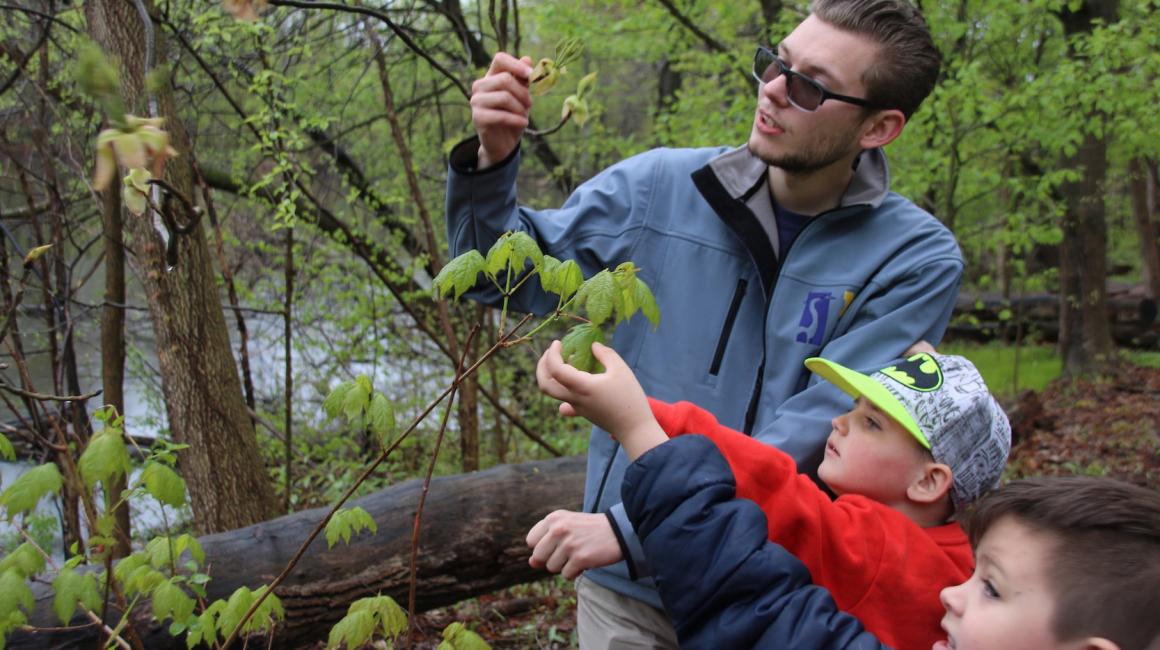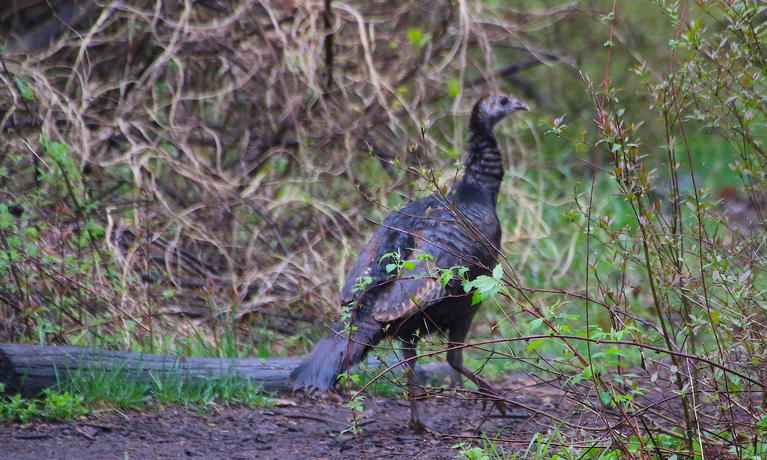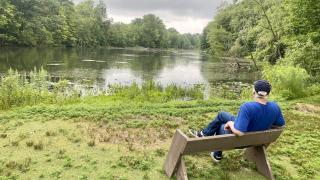
This article was originally published on May 17, 2019.
Some associate summer with “school’s out.” UM-Dearborn senior Griffin Bray agrees in part. But to get him fully behind the statement, he insists on an edit — he sees summer as a time when school’s outside.
Bray’s classroom for learning and teaching this summer is the UM-Dearborn Environmental Study Area’s 300-plus acres. And his students will range from the young to the young at heart.
Majoring in environmental studies, Bray — along with Environmental Interpretive Center staff and naturalist students — will lead community nature-focused lessons on identifying native trees, the evolution of the local land, child-friendly gardening and more.
Bray knows the importance of community programs; he started coming to the Environmental Interpretive Center programs at age 10.
“The education I got as a kid, the land that’s here to learn from, and the resources available to me were factored in when deciding on which college to attend.”
Exploring the areas around the EIC inspired a strong love of nature and teaching for Bray; his goal is to work as a conservationist educator with the Department of Natural Resources. But before he reaches that goal, he needs to gain experience — experience he’s getting at the EIC as a trained student employee.
Animated at times — the gusto he shows over the vertical, bumpy covering of the shagbark hickory keeps that tree ID info top of mind — Bray keeps people engaged.
Other moments, he’s quiet and observant; his long-legged strides can quickly transform into a statue-like stillness when sighting a rare bird resting on a branch. Bray also shows a reverence toward his lecture materials.
And it’s this balance of enthusiasm and respect he and the other EIC staff and students want to share with you over the summer.
Here are upcoming EIC community programs

Bird Watching
8 to 10 a.m. May 25
May isn’t just a month for flowers — it’s also the peak month for spring bird migration in the region. And the EIC’s natural areas attract a variety of feathered friends. Natural Areas Manager Rick Simek leads the free moderately-paced walk where you will hear and see colorful birds, many who are just stopping over before heading to their next destination. Please bring binoculars. Ages 12 to adult.
Identifying Local Trees
1 to 2:30 p.m. June 1
Senior Griffin Bray — who is working on a campus tree survey project — takes community members for a walk around the Environmental Study Area to get better acquainted with different species of local trees. During the free program, he’ll give helpful identification tips that will help you identify trees on your own too. Ages 10 to adult.
A Nature Walk Through Time
10 to 11:30 a.m. Saturday, June 22
This free tour uses today’s technology to get a look at the past and see how human activities on the land have influenced what we see now. During the walk, participants will use provided iPads that have archive photos of the Environmental Study Area’s landscape — the images go back to 1937, when it was still part of Henry and Clara Ford’s estate—so participants can compare those to real-time GPS points from the exact same locations in the present. Ages 12 to adult.
Children's Gardening Program
6 to 7:30 p.m. June 4, 11, 18; July 2, 23; August 6, 20, 27
This eight-session program involves children ages 6 to 8 in a whole growing season — from sowing and planting, to tending, to harvesting the vegetables that are grown in the UM-Dearborn Community Organic Garden. In addition to hands-on education, there will be garden-focused crafts and music. $35 for the eight sessions. Each child must be accompanied by an adult guardian.
Summer Young Naturalist Programs
For ages 7 to 9: 9:30 a.m. to noon July 8, 9, 10, 11
For ages 10-11: 9:30 a.m. to noon July 15, 16, 17, 18
For four consecutive days, children will explore nature with their peers. Each session — led by trained UM-Dearborn student — will have a different theme: Pond exploration, insects and spiders, creatures of the soil, and reptiles and amphibians. $30 per child.



